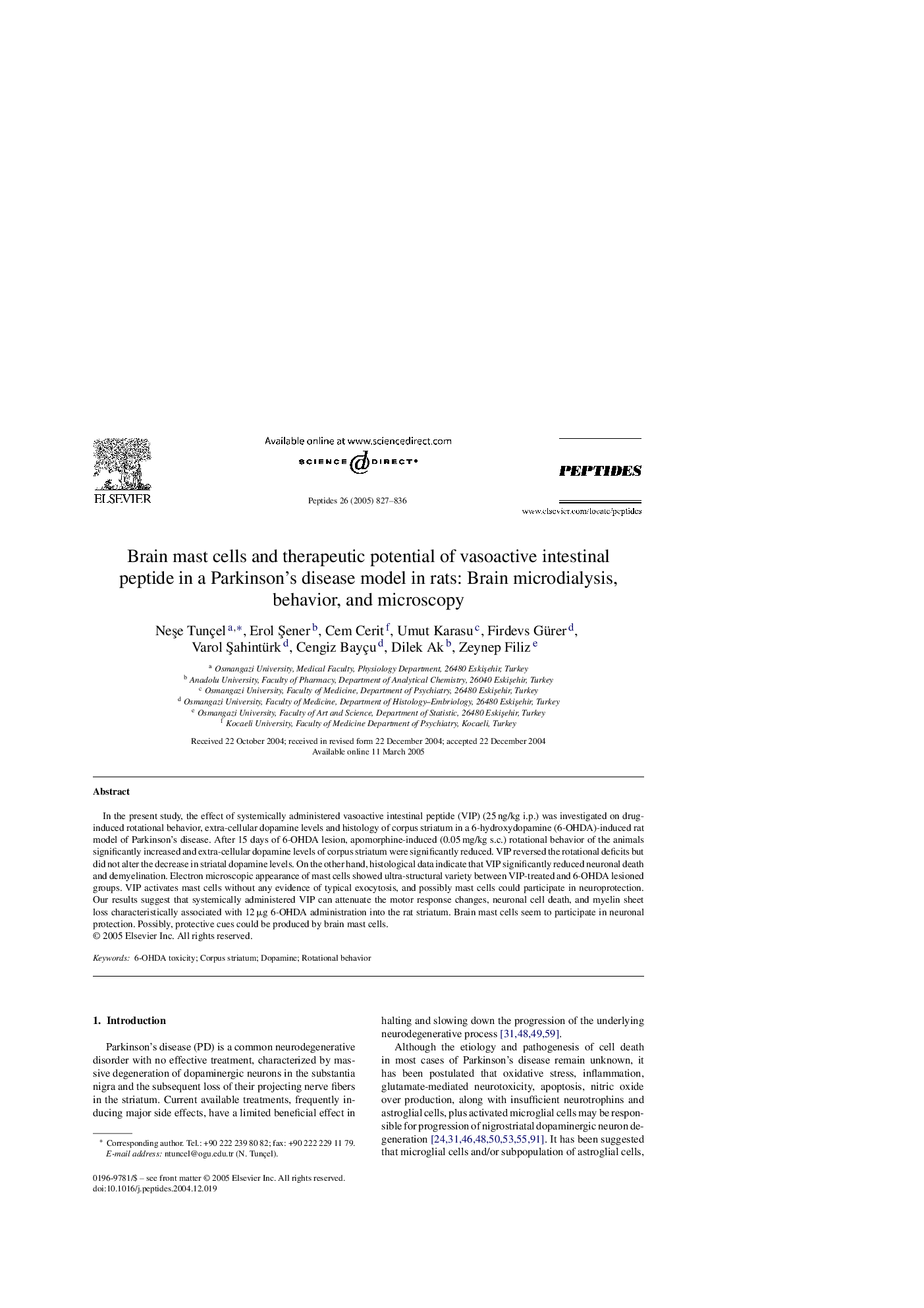| Article ID | Journal | Published Year | Pages | File Type |
|---|---|---|---|---|
| 10836038 | Peptides | 2005 | 10 Pages |
Abstract
In the present study, the effect of systemically administered vasoactive intestinal peptide (VIP) (25 ng/kg i.p.) was investigated on drug-induced rotational behavior, extra-cellular dopamine levels and histology of corpus striatum in a 6-hydroxydopamine (6-OHDA)-induced rat model of Parkinson's disease. After 15 days of 6-OHDA lesion, apomorphine-induced (0.05 mg/kg s.c.) rotational behavior of the animals significantly increased and extra-cellular dopamine levels of corpus striatum were significantly reduced. VIP reversed the rotational deficits but did not alter the decrease in striatal dopamine levels. On the other hand, histological data indicate that VIP significantly reduced neuronal death and demyelination. Electron microscopic appearance of mast cells showed ultra-structural variety between VIP-treated and 6-OHDA lesioned groups. VIP activates mast cells without any evidence of typical exocytosis, and possibly mast cells could participate in neuroprotection. Our results suggest that systemically administered VIP can attenuate the motor response changes, neuronal cell death, and myelin sheet loss characteristically associated with 12 μg 6-OHDA administration into the rat striatum. Brain mast cells seem to participate in neuronal protection. Possibly, protective cues could be produced by brain mast cells.
Related Topics
Life Sciences
Biochemistry, Genetics and Molecular Biology
Biochemistry
Authors
NeÅe Tunçel, Erol Åener, Cem Cerit, Umut Karasu, Firdevs Gürer, Varol Åahintürk, Cengiz Bayçu, Dilek Ak, Zeynep Filiz,
